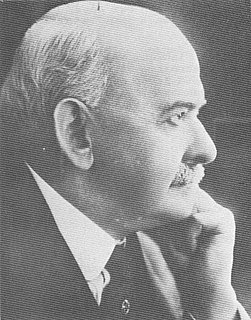A Quote by Stanley Hauerwas
The Gospel of John makes explicit what all the Gospels assume - that is, the cross is not a defeat, but the victory of our God.
Related Quotes
It is not what we do that matters, but what a sovereign God chooses to do through us. God doesn't want our success; He wants us. He doesn't demand our achievements; He demands our obedience. The Kingdom of God is a kingdom of paradox, where through the ugly defeat of a cross, a holy God is utterly glorified. Victory comes through defeat; healing through brokenness; finding self through losing self.
It's important, though, that there are not "four gospels." There is only one gospel: the good news of what God has done through Christ to save the world. But we read that one gospel in four complementary accounts: The gospel, according to Matthew, according to Mark, according to Luke, according to John.
The spot where God's triumph is achieved, God's victory over sin, over lawlessness, is the cross of Calvary- the cross on which the Son of God died. In that cross and through the cross the works of the devil were destroyed, and the One who conquered him is yet to bruise the serpent's head in the final triumph when He comes again, as recorded in prophecy.
The resurrection is the revelation to chosen witnesses of the fact that Jesus who died on the cross is indeed king - conqueror of death and sin, Lord and Savior of all. The resurrection is not the reversal of a defeat but the proclamation of a victory. The King reigns from the tree. The reign of God has indeed come upon us, and its sign is not a golden throne but a wooden cross.
Our personal afflictions involve the living God; the only way in which Satan can persecute or afflict God is through attacking the people of God. The only way we can have personal victory in the midst of these flying arrows raining down on us is to call upon the Lord for help. It is His strength, supplied to us in our weakness, that makes victory after victory possible.
Apart from it, the incarnation and the ministry would lose all their significance, the crucifixion would be but a martyrdom, and the cross a symbol of the victory of death over life. By the Resurrection it was that the Crucified One was "declared to be the Son of God with power," the great truth on which the Christian's faith is founded, and to which his hope is anchored. That Christ died for our sins is the Gospel of the Christian religion regarded as a human cult. The Gospel of Christianity goes on to declare "That He rose again the third day according to the Scriptures"
All archaeologists in Israel and Palestine make use of the New Testament Gospels. They do this because the Gospels exhibit verisimilitude. In short, the Gospels help archaeologists know where to dig and they help archaeologists understand what they unearth. The 2nd-century Gospels and Gospel-like writings rarely exhibit verisimilitude, so archaeologists rarely appeal to them.
Commonly, people believe that defeat is characterized by a general bustle and a feverish rush. Bustle and rush are the signs of victory, not of defeat. Victory is a thing of action. It is a house in the act of being built. Every participant in victory sweats and puffs, carrying the stones for the building of the house. But defeat is a thing of weariness, of incoherence, of boredom. And above all of futility.
In every adversity there lies the seed of an equivalent advantage. In every defeat is a lesson showing you how to win the victory next time. [But you must know enough to realise this, lest you focus more on the defeat than finding the lesson you paid for with the defeat. With every defeat and mistake, you have the logical right to get excited about the future when you will understand and be able to apply the lessons and thereby turn defeat and temporary failure into victory and permanent success.]







































